Family garden
Family garden serves for the presentation of the most common aromatic herbs in Dalmatia and is an ideal place to familiarise all your senses with this precious flora.
Absinthium 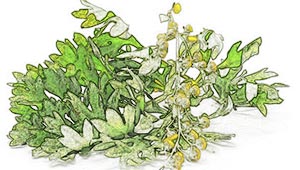
(Lat. Artemisia absinthium) Absinthium is most often used to improve digestion and to increase appetite.

(Lat. Artemisia absinthium) Absinthium is most often used to improve digestion and to increase appetite.
Rosemary
(Lat. Rosmarinus officinalis) is a medicinal aromatic herb. Its name comes from the Latin words ros (dew) and marinus (sea), translated as ‘’sea dew", since its growth has a beneficial effect on the sea breeze which carries humidity.

(Lat. Rosmarinus officinalis) is a medicinal aromatic herb. Its name comes from the Latin words ros (dew) and marinus (sea), translated as ‘’sea dew", since its growth has a beneficial effect on the sea breeze which carries humidity.
Sage 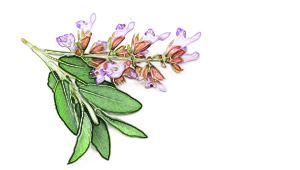
(Lat. Salvia officinalis) has, for more than 4 000 years, had a reputation of a miraculous herb able to treat many diseases. Moreover, some nations find it sacred. Its name Salvia comes from Latin verb salvum which means "to save". Its antibacterial, antiviral and antifungal properties have been proved.

(Lat. Salvia officinalis) has, for more than 4 000 years, had a reputation of a miraculous herb able to treat many diseases. Moreover, some nations find it sacred. Its name Salvia comes from Latin verb salvum which means "to save". Its antibacterial, antiviral and antifungal properties have been proved.
Lavender 
(Lat. Lavandula officinalis) In Croatia known as the “Hvar lavender’’ but it is actually lavandin, a hybrid of real lavender and broadleaved lavender. Real lavender contains relatively small amounts of essential oils, thus its oil is rather expensive. On the contrary, lavandin produces larger amounts of essential oil.

(Lat. Lavandula officinalis) In Croatia known as the “Hvar lavender’’ but it is actually lavandin, a hybrid of real lavender and broadleaved lavender. Real lavender contains relatively small amounts of essential oils, thus its oil is rather expensive. On the contrary, lavandin produces larger amounts of essential oil.
Thyme 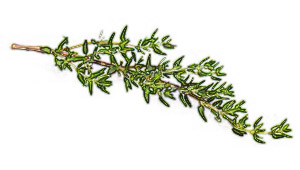
(Lat. Thymus vulgaris) The most common varieties are Thymus vulgaris and Thymus serpyllum.

(Lat. Thymus vulgaris) The most common varieties are Thymus vulgaris and Thymus serpyllum.
Lemmon balm 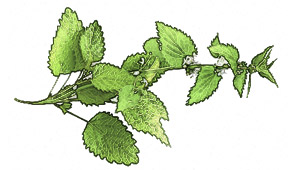
This marvellous herb of a pleasant lemon scent is a close relative to sage and lavender.
(Lat. Melissa officinalis) is also known as lemon balm, balm, common balm and balm mint.

This marvellous herb of a pleasant lemon scent is a close relative to sage and lavender.
(Lat. Melissa officinalis) is also known as lemon balm, balm, common balm and balm mint.
Chamomile 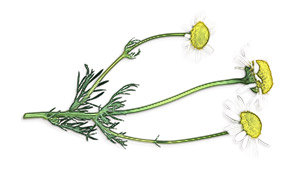
In our country chamomile is a widespread plant, while its tea is certainly one of the most popular drinks.

In our country chamomile is a widespread plant, while its tea is certainly one of the most popular drinks.
Marjoram
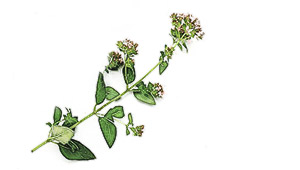
(Lat. Origanum majorana) Marjoram is a strong spice due to the high percentage of essential oils it contains which give it a strong flavour. It is also known as sweet marjoram, knotted marjoram or pot marjoram.

(Lat. Origanum majorana) Marjoram is a strong spice due to the high percentage of essential oils it contains which give it a strong flavour. It is also known as sweet marjoram, knotted marjoram or pot marjoram.
Basil 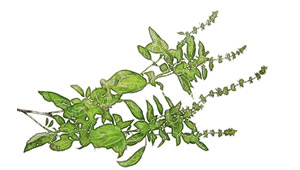
(Lat. Ocimum basilicum) is a one-year culinary herb native to India, today widespread all over Europe, which makes it indispensable in the Mediterranean kitchen.

(Lat. Ocimum basilicum) is a one-year culinary herb native to India, today widespread all over Europe, which makes it indispensable in the Mediterranean kitchen.
